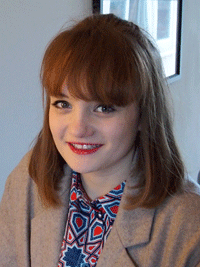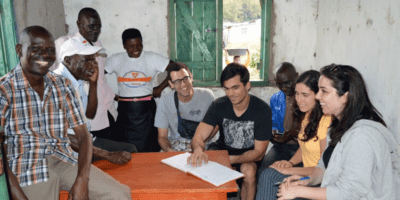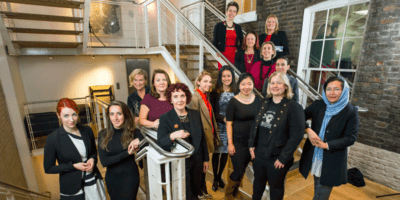Eilidh Scott-Dickins is a primary school teacher currently in her NQT (newly qualified teacher) year, where she is based at Eastfield Primary School in Hull. After studying for her Electrical and Mechanical Masters of Engineering at the University of Strathclyde and working as an engineer for a number of years, she made the switch to teaching.

“…when you watch how far your students have come from the beginning of the year to the end, you can’t help but get goosebumps. No day is ever the same and introducing children to things they’ve never heard of is extremely rewarding. I love learning new things so I like trying to inspire that in others…”
Please can you tell us about your career to date and what made you want to go into teaching?
I studied for my Electrical and Mechanical Engineering M.Eng at the University of Strathclyde in Glasgow before working for a consultancy as a project engineer for 18 months. This was followed by an 18 month stint at Shell as an electrical engineer in Holland. I decided to leave to become a teacher having previously worked as a STEM ambassador, which I found incredibly inspiring. I knew that it was something I was interested in doing eventually so I decided to take the plunge.
What does your role involve on a day to day basis and how is the role of primary school teacher evolving?
I currently teach year 3 students at a large primary school. My day usually begins with some lesson preparation, which can include marking or preparing resources and activities. The day usually flies by starting with a maths lesson followed by break, then reading and English.
Before I know it, lunchtime has arrived. I usually save the afternoon for science or PE when we can be a bit more creative! After school, I organise my classroom and finish my marking ready for the day ahead, as well as seeing to any paperwork – something which has become more important for teachers in recent years. However, I try to get these types of tasks done after the children have left for the day to avoid taking work home as I feel this helps me to maintain a better work-life balance.
Research from the National College for Teaching and Leadership (NCTL) says that teachers are more likely to achieve high levels of job satisfaction (experiencing moments that give them ‘goosebumps’) than any other profession. Why is it so rewarding?
It’s much more rewarding to me than engineering. Lots of my friends thrive on the challenge of engineering and science but I think teaching is equally as challenging, if not more so. Getting a group of seven and eight year olds to be focused, calm and interested is a massive challenge! Once they are interested it’s one of the best feelings in the world.
Also, when you watch how far your students have come from the beginning of the year to the end, you can’t help but get goosebumps. No day is ever the same and introducing children to things they’ve never heard of is extremely rewarding. I love learning new things so I like trying to inspire that in others.
There’s a movement in education to encourage more girls to keep studying STEM subjects up to A-level. What role does primary STEM education play in retaining the interest and curiosity of both girls and boys so a gender divide doesn’t open up later?

Primary schools are making children ask more questions about why they are doing things, particularly in maths with the new curriculum, which promotes mastery. This is a new approach to teaching maths which is set to become a standard feature in England’s primary schools. It involves deeper levels of thinking and a strong understanding of numbers so that students can provide the reasoning behind their answers.
How is tech changing the way primary classes are taught and how does this enable to you educate children in new ways?
At the moment I am running a code club, which has been set up through the Raspberry Pi Foundation. Any school can sign up and get volunteers, which is great. There are ready-made plans and tutorials teaching children how to make their own games from scratch, as well as learning to code in HTML and Python. To get a primary school child using Python is amazing! It’s such an exciting time for educating children using technology. I am also talking to my ICT head about ordering some CodeBugs, which are wearable technology.
How is teacher training evolving?
There are so many training options for budding teachers now, in addition to tax-free bursaries and scholarships in a range of subjects, making it really accessible. My teacher training was fantastic as I was able to learn on the job with a salary. I really valued being able to learn so much and have the opportunity to earn money whilst progressing towards qualification.
What would your advice be to Womanthology readers who would be interested in learning more about a career in teaching?
I would recommend anyone thinking about teaching to do it! It’s amazing and really fulfilling. It can definitely be challenging but it’s worth every minute.
What is coming up next for you in your career?
At the moment, I am focussing on completing my NQT year. However next year, I will get a specialist subject – hopefully science or ICT.
https://getintoteaching.education.gov.uk
https://twitter.com/getintoteaching
https://www.facebook.com/getintoteaching
https://www.youtube.com/user/getintoteaching





